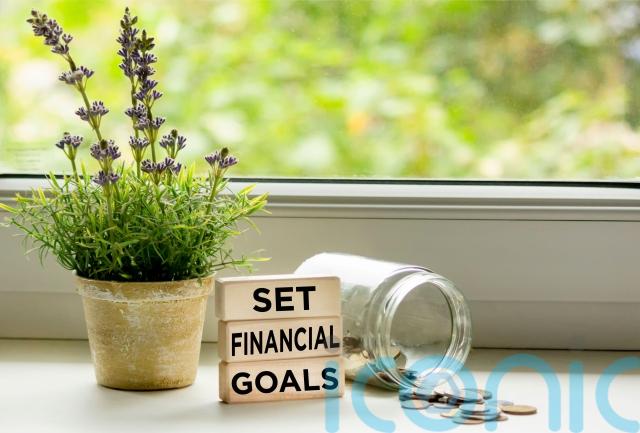
It can be easy to assume that investing is just for wealthy maths geniuses with expert knowledge of global markets. But that really isn’t the case.
“You don’t need to have lots of money to make a start,” says Claire Exley, head of financial advice and guidance, and J.P. Morgan-owned digital wealth manager, Nutmeg. You can start with £100 (sometimes less), don’t need a granular understanding of stocks and shares, and don’t need to spend lots of time on it either. Investing can even be enjoyable. “When you’ve got into the discipline of regular investing, seeing the rewards grow over time is fun, especially when you link that to a goal,” says Exley.
So as a total investment novice, where should you start?
Think about a savings buffer
Exley says first have a savings buffer in place. “How much cash do you need that’s easily accessible for something unexpected happening? What are your fixed bills? Have you got dependents?” she asks. “We would usually say, have between three and six months of essential spending saved in an account you can easily access. If you’ve got that, then you can think about whether investing is right for you.”
Have a goal

Consider what you are investing for and when you’re likely to need the money. “If you’ve got a financial goal that’s within the next three years, maybe think about getting the best savings rate you can. But if your goal’s three to five or more years in the future, it is important people think about investing,” says Exley. “When you think, ‘This is my ‘dream house’ pot, or my ‘send my kids to university’ pot, you’re much more likely to stick to a plan and keep paying that direct debit every month.”
DIY vs a digital wealth manager
For investment newbies, Exley says readymade portfolios, run by a digital wealth manager (like Moneybox, Nutmeg, Plum), are particularly useful. “You pick a goal and a risk level, then all of the investment decisions are made on your behalf,” she explains. “[They] decide when to buy, when to sell, when to hold, but you decide what your time frame is, what level of risk you’re comfortable with and if you’ve got any particular preferences, like socially responsible investing or a particular investment theme, like technology.”
You can go it alone, while “some people like to have some of their investments managed on their behalf, but have a smaller amount they’re happy to do a bit of self-directed investing with”.
If you feel you need more help deciding which route is right for you, most investment funds provide guidance on their websites. “You won’t get a recommendation or somebody saying, ‘You should do this,’ but you’ll get detailed factual information to help you feel more confident in your own decision,” says Exley. “Then if you do want a full recommendation, you can think about whether financial advice is right for you.”
Try Pension Wise for free advice, and if you really get into the world of investing, have a listen to podcasts like Unhedged and This is Money.
Protect your investments

Whatever route you take, Exley recommends thinking about the “wrapper” that goes around your investment. “It’s like having a protective case for your phone. The phone is the investment, but the case – the ISA or pension, for instance – is shielding it from damage, which will be tax on any growth or income your investments generate,” explains Exley. “As well as thinking about the underlying investments, think about making sure you’re being as tax-efficient as possible.”
Be prepared for losses
Unavoidably, there’s an element of risk when investing. “Volatility is normal. It’s a perfectly natural part of the investment cycle,” says Exley. “But it’s really important to make sure you understand the level of risk you’re taking and that you’re comfortable with that.
“While your investments may grow over time – and history tells us that can be likely – in the short-term, you are going to see the value rise and fall, and that can be a little bit difficult for people to get to grips with,” she warns. “It’s important to remember that staying in cash isn’t risk-free either.”
Avoid constantly checking your investments
“If your goal is 10, 20 or even 30 years away, you don’t need to check your investments all the time. What the value of your investment is doing this week or next isn’t that relevant if your goal’s a long time away, and those people that stay the course and ride out market movements are more likely to benefit over the longer term.”
Try to avoid panicking at fluctuations and withdrawing funds on a whim. “We see people not achieving what they want because they’ve made a reactive decision, sometimes even based on something they just think might happen in the future.”
It’s never too young to start

Even newborns can start investing. Parents can open a stocks and shares junior ISA for their child from birth, and put away up to £9k tax-free a year. “Anybody can contribute as well,” notes Exley. “Even though the parent or guardian has to take it out, grandparents and godparents can contribute. That’s quite helpful when it comes to Christmas and birthdays, if you don’t want to end up with piles of toys.”
Subscribe or register today to discover more from DonegalLive.ie
Buy the e-paper of the Donegal Democrat, Donegal People's Press, Donegal Post and Inish Times here for instant access to Donegal's premier news titles.
Keep up with the latest news from Donegal with our daily newsletter featuring the most important stories of the day delivered to your inbox every evening at 5pm.